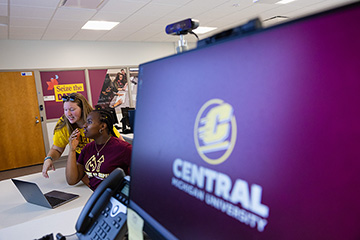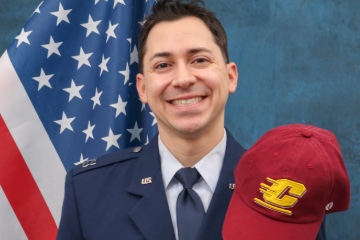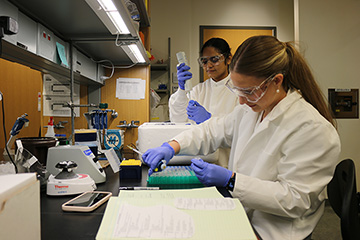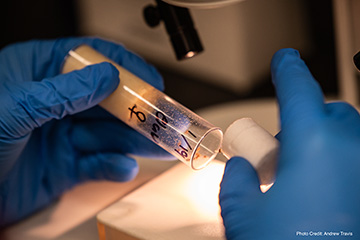Professor Wins CMU 2023 International Impact Award
Anthony Chappaz, Ph.D., receives award for engaging at the international level with teaching and scholarly activity.
Anthony Chappaz, Ph.D., from the Department of Earth and Atmospheric Sciences, is the Director of the Speciation-Traces-Analysis-Radioisotopes lab (STARLAB) at CMU. Recently, he was awarded the CMU 2023 International Impact Award. Chappaz, who has been at CMU for 12 years, developed an innovative and integrative approach to studying trace elements in the environment. Trace elements are elements that exist in incredibly low concentrations in natural samples, frequently below 1%.
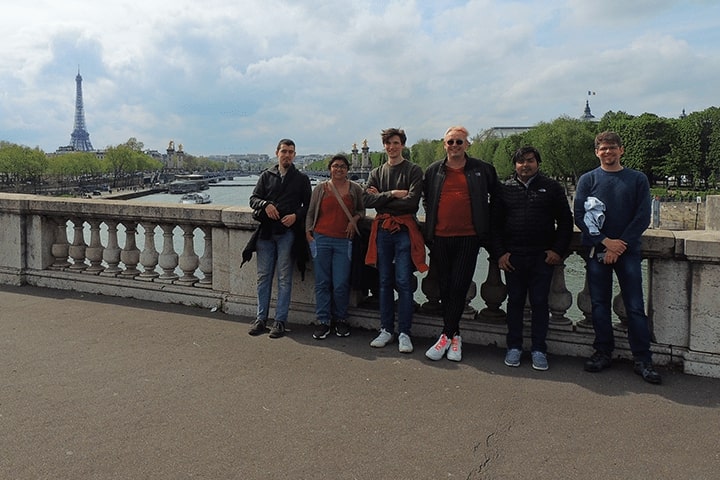
These trace elements are ubiquitous. In other words, although they display low concentrations, they are present in all ecosystems on Earth. Some are necessary for different biological processes, some are toxic like mercury or lead, some contribute to improving the properties of new materials, and some are critical metals, like lithium in batteries. Trace elements can also be used to study the Earth’s history, as some of them are sensitive to oxygen levels, so extinctions and other major Earth events can be tracked by examining trace elements in sedimentary rocks.
While there are many different approaches to trace element research, Chappaz strives to not limit himself to one singular field of science, combining geology, physics, and chemistry. Chappaz’s integrative strategy, known as molecular geochemistry, combines research on trace element concentration, isotope ratios, and molecular aspects.
There are very few researchers who cover all three dimensions, giving Chappaz the opportunity to collaborate with labs all over the world. Not only does he get to form these international connections, but his students and postdocs do as well, as he encourages them to “open [their] mind and realize that there is a whole world besides your university and your state.” He helps his students and postdocs to network on a global scale and encourages them to form connections based on their own research and ideas.
In the future, Chappaz’s goal is to make his lab, the STARLAB, an international hub for trace element research, bringing in scientists from around the world to stay for weeks or months to collaborate on their work. This would allow for networking opportunities for students from around the world, and the development of more global research teams. “Right now, I’m more about making connections between people, and it’s very rewarding,” says Chappaz. “My students tend to be from Michigan, but we have a big world, and you have to see it. It’s amazing.”
This story is brought to you by the Office of Research and Graduate Studies.
